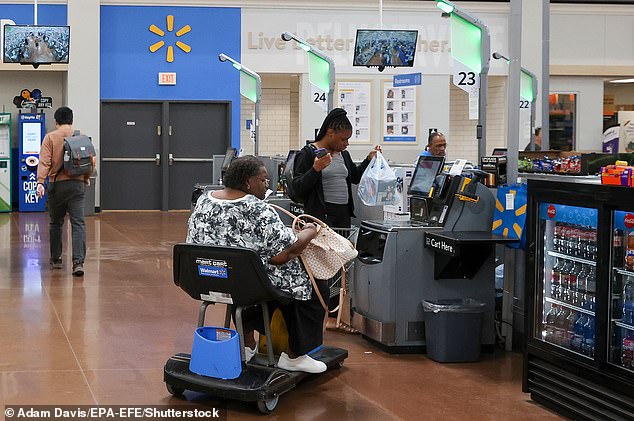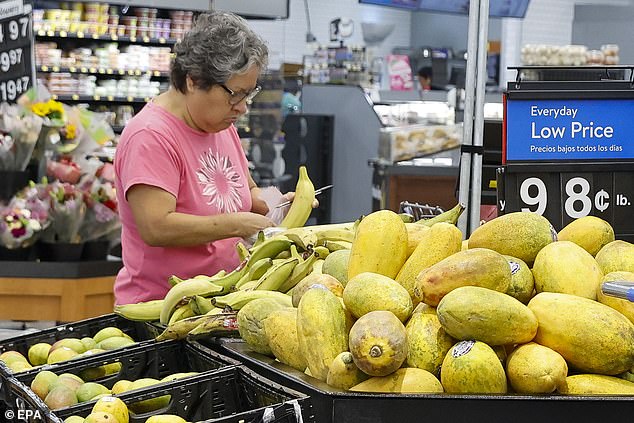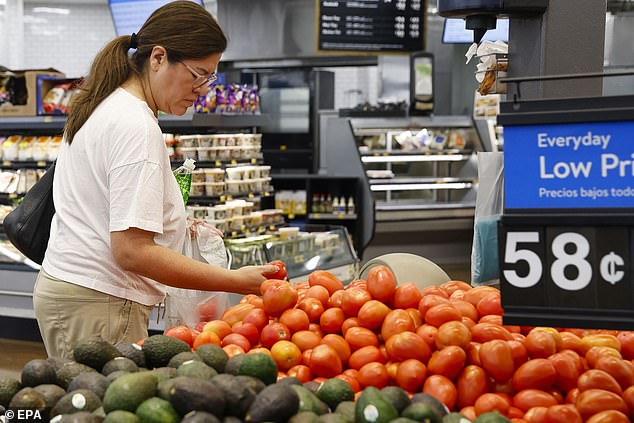- Class Action Lawsuit Accuses Retail Giant of Overcharging for Certain Items
- Buyers must submit a claim form by June 5 in order to receive payment.
- Those without a receipt will only be entitled to between $10 and $25.
Walmart is shelling out $45 million as part of a legal settlement, and here’s how shoppers can get paid.
The class action lawsuit was filed in Florida after shoppers accused the retail giant of overcharging for certain items that are paid for by weight, such as produce.
The settlement class includes those who purchased bagged heavy or citrus products in person at a Walmart in the United States or Puerto Rico between October 18, 2018 and January 19, 2024.
The maximum amount Walmart will pay each customer is $500. Claim forms can be submitted online or mailed by June 5, but buyers must apply to receive payment.
Walmart is shelling out $45 million as part of a legal settlement, and here’s how shoppers can get paid

Customers are entitled to up to $500 each, but must submit claim forms by June 5 to receive payment.

The lawsuit claims Walmart “falsely inflates product weight” and overcharges shoppers for certain “heavy products” and “bagged citrus.”
The lawsuit claims Walmart “falsely inflates product weight” and overcharges shoppers. Eligible weighted products include meat, poultry, pork and seafood products that are labeled with a price-embedded barcode and designated by Walmart as part of its Department 93 products.
As for bagged citrus, this includes organic oranges, grapefruits, tangerines and navel oranges sold in bulk in mesh or plastic bags. Terms exclude online purchases and resale.
The amount paid to each client will depend not only on the number of people filing claims, but also on whether the U.S. District Court in Tampa decides to approve the settlement itself. That decision is expected to be made in June.
Customers with a receipt, proof of purchase or other documentation can recover 2 percent of the total cost up to $500.
That amount decreases drastically for those without a receipt. The breakdown is as follows:
- For purchases of 50 claimed eligible items, buyers are entitled to $10.
- For purchases of 51 to 75 eligible items claimed, buyers are entitled to $15
- For purchases of 76 to 100 claimed eligible items, buyers are entitled to $20
- For purchases of 101 or more eligible items claimed, buyers are entitled to $25
The deadline to object, comment, or opt out of the deal (which means people won’t get paid, but will reserve the right to sue the company) is May 22.

Customers with a receipt, proof of purchase or other documentation can recover 2 percent of the total cost up to $500, but those without a receipt are entitled to only a fraction of that.

Online and resale purchases are not included in the terms of the agreement.

The deadline to object, comment, or opt out of the deal (which means people won’t get paid, but will reserve the right to sue the company) is May 22.
A class action lawsuit reviewed by DailyMail.com claims that Walmart’s “false, deceptive, unfair, and deceptive conduct” directly violates state consumer protection statutes and state common law.
In a statement, a Walmart representative denied the allegations but admitted that a settlement was “in the best interest of both parties.”
Tampa man Vassilios Kukorinis was the first to sound the alarm about the overcharging.
According to Kukorinis, who is the lead plaintiff in the class action, the charges at the checkout exceeded prices that should have been based on the store’s posted prices by weight.
He visited Walmart stores across the state to gather evidence, which he then presented to lawyers at the Manhattan-based firm Morgan & Morgan.
Morgan & Morgan sent its own investigators to Walmart stores before filing a class-action complaint in February 2019.
In November 2019, Kukorinis flew to California with lawyers for a mediation session with the retail chain.
Morgan & Morgan subsequently reached a settlement with Walmart’s lawyers in Greenberg Traurig, but Kukorinis claimed he was not notified of the outcome.
In 2020, the Florida man vowed not to accept his $25,000 service award, calling the settlement a “betrayal of all members of the class action, orchestrated without my knowledge.”


